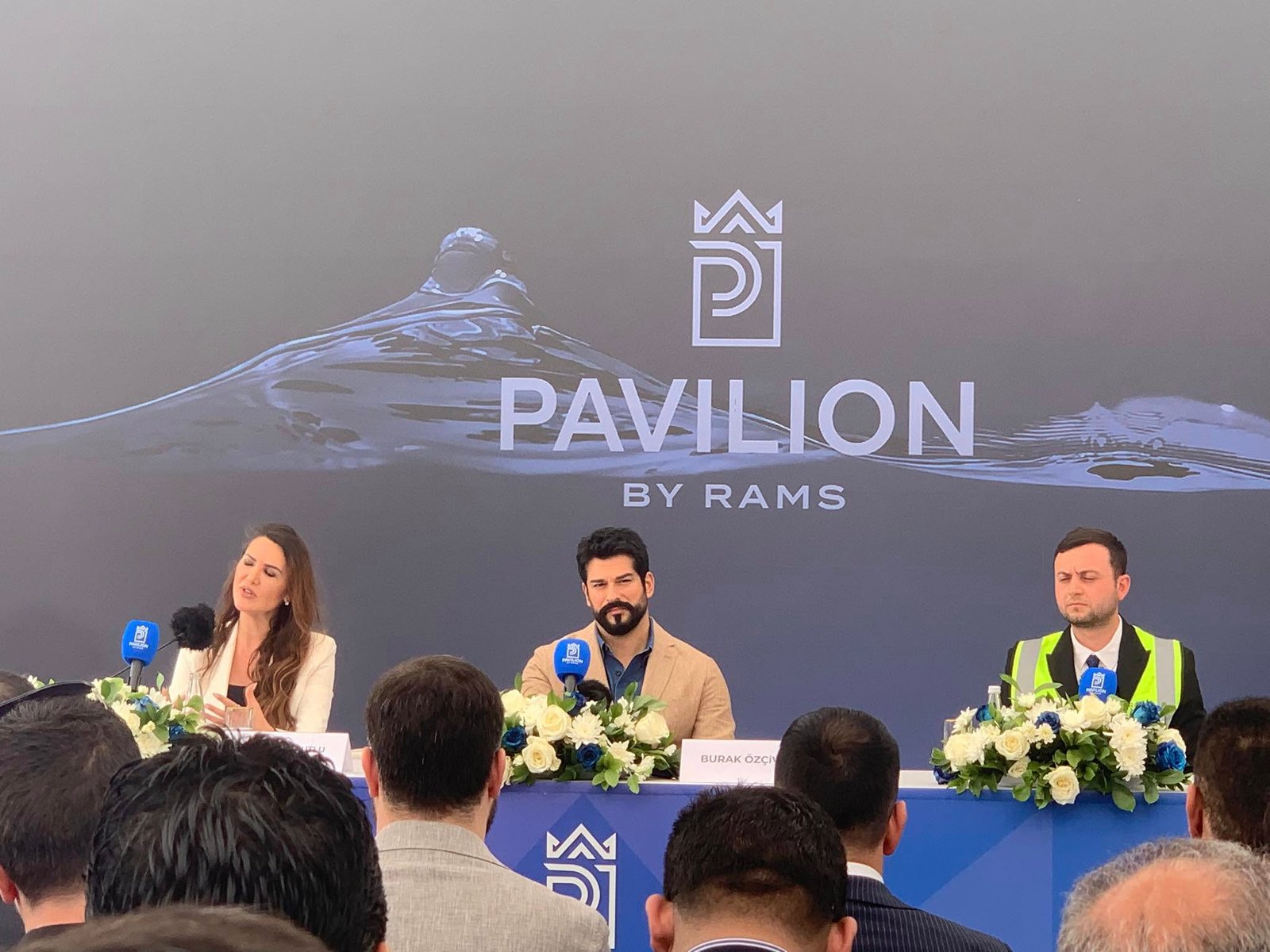Turkish Actor, Seized Christian Land, and the KRG PM’s Real Estate Empire

Yesterday, amid extensive coverage by media outlets affiliated with KRG Prime Minister Masrour Barzani—such as Kurdistan24 TV and AVA Media—famous Turkish actor Burak Özçivit arrived in Erbil. His visit received unusually heavy promotion because it forms part of a deal in which Özçivit will serve as the face of the Pavilion project, a luxury real estate development widely believed to be owned by PM Barzani himself. But behind the media fanfare lies a far more contentious and revealing story.
The Pavilion project is being built on land that, until recently, was Christian-owned farmland located near Erbil International Airport. The land was seized and reclassified as investment property—making it eligible, under KRG investment law, to be granted free of charge for government-approved projects. According to opposition leader and member of Kurdistan Parliament Ali Hama Saleh—who confirmed the land’s Assyrian ownership and, after consulting with real estate experts, estimated the 612-dunum property to be worth approximately $1.2 billion in 2022.
A central feature of the Pavilion project is a massive artificial lake, reportedly spanning 300,000 square meters. The water is sourced from the Great Zap River, which originates upstream in Turkey’s Lake Van region. What’s striking is that this artificial lake was initially planned as a public infrastructure project by the KRG in the early 2010s. At the time, the government had proposed constructing a lake and extending water from the Great Zap near Kalak—just outside Erbil—as part of a broader plan to provide public amenities and address water scarcity. Instead, the same concept has now been implemented through a private, gated real estate project with restricted access, offering benefits only to a wealthy few while sidelining the public interest.

The project itself has faced significant challenges and delays due to poor sales. Construction began in 2022 under Lalav Group, widely viewed as the real estate arm of Masrour Barzani’s business network and managed by frontman Haji Choli. According to Ali Hama Saleh, Lalav sold only 40 of the planned 600 villas, which start at $1 million each, in addition to luxury apartments and other amenities. Lalav’s reputation has suffered due to construction delays on numerous projects and allegations of using substandard materials. After Barzani became Prime Minister in 2019, the company received dozens of construction contracts in Erbil and Duhok, but its tarnished reputation and known association with the Prime Minister led to it being sidelined.
Following Lalav’s failure, the project was handed over to a joint venture between Emirati and Egyptian firms, who brought on Arab pop singer Rahma Riad in a $400,000 promotional campaign. That effort also failed to generate sufficient buyer interest. Most recently, the project has been subcontracted to Turkish firm Rams Global, and Özçivit has been enlisted as its new celebrity ambassador, reportedly alongside Lebanese singer Nancy Ajram.
Interestingly, Özçivit, like many Turkish actors, has publicly supported Turkish military operations, including the campaign in the predominantly Kurdish Syrian city of Afrin. Though this is not unique to him and is standard practice for almost all Turkish celebrities supporting any Turkish military operation. During his Erbil press conference, Özçivit remarked that the lake’s water “comes from Turkey”—framing it as a point of connection between himself and the project, since the Great Zab River originates in Van province, a predominantly Kurdish region in eastern Turkey.
In a twist rich with symbolism, a reporter from AVA TV—a channel owned by PM Masrour Barzani—asked Özçivit, in Turkish, to say “I love you” in Kurdish. The reporter’s name, perhaps serendipitously, was Kurdistan. All of this is especially striking given that the man behind both the project and the channel, Masrour Barzani, routinely postures as a Kurdish nationalist—one who rhetorically claims Van, Afrin, and Erbil alike as integral parts of a greater Kurdistan.
In sum, behind the carefully staged celebrity appearance is a deeply symbolic story: a Turkish actor is now the face of a luxury development built on confiscated Assyrian farmland, marketed on behalf of the Kurdish prime minister. It’s a story that encapsulates land expropriation, political patronage, and cross-border image-making—all wrapped in real estate and regional soft power.










